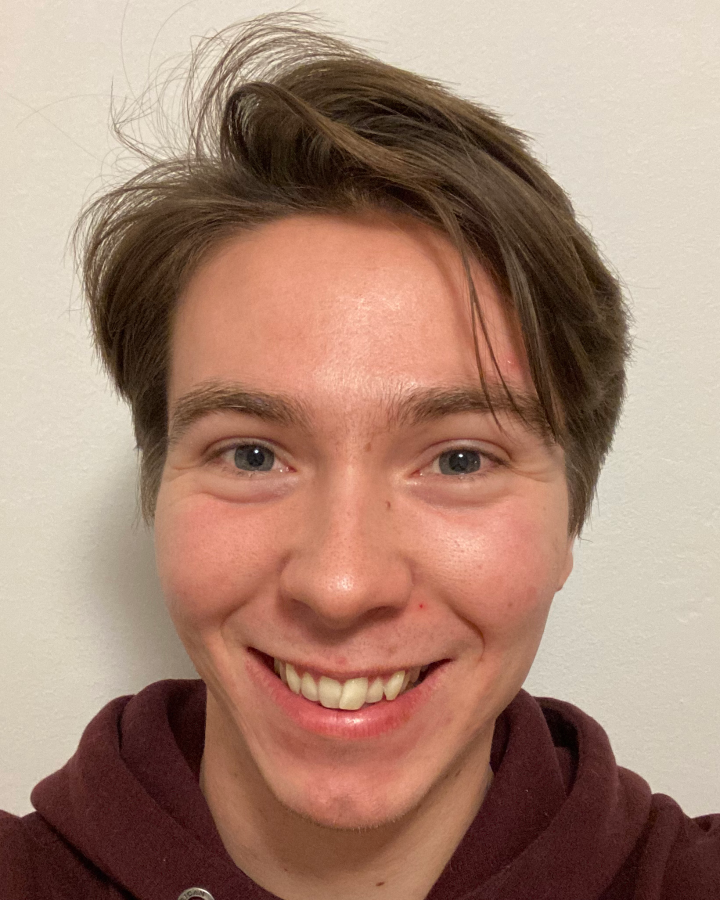Gerti Kappel
O.Univ.Prof.in Dipl.-Ing.in
Mag.a Dr.in techn.
Gerti Kappel
- Email: gertrude.kappel@tuwien.ac.at
- Phone: +43-1-58801-18870
- Office: HC0215 (1040 Wien, Favoritenstrasse 9)
- About:
Gerti Kappel is full professor at the Institute of Information Systems Engineering at TU Wien, chairing the Business Informatics Group. Prior to that, from 1993 to 2001, she was a full professor of computer science (database systems) and head of the Department of Information Systems at the Johannes Kepler University Linz.
From 2016 to 2019, she was a member of the dean’s team of the Faculty of Informatics responsible for research, diversity, and financial affairs. Since the beginning of 2020 she acts as the dean of the Faculty of Informatics at TU Wien.
Her current research interests include Model Engineering, Web Engineering, and Process Engineering, with a special emphasis on cyber-physical production systems. Striving for the unity of research and teaching, she co-authored and co-edited among others „UML@Work“ (dpunkt.verlag, 3rd ed, 2005), „UML@Classroom“ (Springer, 2015), and „Web Engineering“ (Wiley, 2006).
- Orcid: 0000-0002-4758-9436
- Keywords: Process Engineering, Data Engineering, Services Engineering, UML and XML, Business Process Management (BPM), Model Engineering, Workflow Management Systems (WFMS), Web Engineering, Object Orientation, Software Engineering
- Roles: Head of Services, Full Professor
Publications
An Example Is Worth a Thousand Words: Composite Operation Modeling By-Example
 Petra Kaufmann
Petra Kaufmann Philip Langer
Philip Langer Martina Seidl
Martina Seidl Konrad Wieland
Konrad Wieland Manuel Wimmer
Manuel Wimmer Werner Retschitzegger
Werner Retschitzegger Wieland Schwinger
Wieland SchwingerKeywords:
Astract: Predefined composite operations are handy for efficient modeling, e.g., for the automatic execution of refactorings, and for the introduction of patterns in existing models. Some modeling environments provide an initial set of basic refactoring operations, but hardly offer any extension points for the user. Even if extension points exist, the introduction of new composite operations requires programming skills and deep knowledge of the respective metamodel.
In this paper, we introduce a method for specifying composite operations within the user´s modeling language and environment of choice. The user models the composite operation by-example, which enables the semi-automatic derivation of a generic composite operation specification. This specification may be used in various modeling scenarios, like model refactoring and model versioning. We implemented the approach in the Operation Recorder and performed an evaluation by defining multiple complex refactorings for UML diagrams.
Kaufmann, P., Langer, P., Seidl, M., Wieland, K., Wimmer, M., Kappel, G., Retschitzegger, W., & Schwinger, W. (2009). An Example Is Worth a Thousand Words: Composite Operation Modeling By-Example. In Model Driven Engineering Languages and Systems (pp. 271–285). Springer. https://doi.org/10.1007/978-3-642-04425-0_20
Reviving QVT Relations: Model-Based Debugging Using Colored Petri Nets
 Manuel Wimmer
Manuel Wimmer Angelika Kusel
Angelika Kusel Johannes Schoenboeck
Johannes Schoenboeck Werner Retschitzegger
Werner Retschitzegger Wieland Schwinger
Wieland SchwingerKeywords:
Astract: The standardized QVT Relations language, one cornerstone of Model-Driven Architecture (MDA), has not yet gained widespread use in practice, not least due to missing tool support in general and inadequate debugging support in particular. Transformation engines interpreting QVT Relations operate on a low level of abstraction, hide the operational semantics of a transformation and scatter metamodels, models, QVT code, and traces across different artifacts. We propose a model-based debugger representing QVT Relations on bases of TROPIC, a model transformation framework which utilizes a variant of Colored Petri Nets (CPNs) providing an explicit runtime model and a homogenous view on all artifacts of a transformation.
Wimmer, M., Kusel, A., Schoenboeck, J., Kappel, G., Retschitzegger, W., & Schwinger, W. (2009). Reviving QVT Relations: Model-Based Debugging Using Colored Petri Nets. In Model Driven Engineering Languages and Systems (pp. 727–732). Springer. https://doi.org/10.1007/978-3-642-04425-0_59
Why Model Versioning Research is Needed!? An Experience Report
 Kerstin Altmanninger
Kerstin Altmanninger Petra Kaufmann
Petra Kaufmann Philip Langer
Philip Langer Martina Seidl
Martina Seidl Konrad Wieland
Konrad Wieland Manuel Wimmer
Manuel WimmerKeywords:
Astract: The status of current model-driven engineering technologies has matured over the last years whereas the infrastructure supporting model management is still in its infancy. Infrastructural means include version control systems, which are successfully used for the management of textual artifacts like source code. Unfortunately, they are only limited suitable for models. Consequently, dedicated solutions emerge. These approaches are currently hard to compare, because no common quality measure has been established yet and no structured test cases are available. In this paper, we analyze the challenges coming along with merging different versions of one model and derive a first categorization of typical changes and the therefrom resulting conflicts. On this basis we create a set of test cases on which we apply state-of-the-art versioning systems and report our experiences.
Altmanninger, K., Kaufmann, P., Kappel, G., Langer, P., Seidl, M., Wieland, K., & Wimmer, M. (2009). Why Model Versioning Research is Needed!? An Experience Report. In Proceedings of the Joint MoDSE-MCCM 2009 Workshop (p. 12). http://hdl.handle.net/20.500.12708/52774
Keywords:
Astract: Traditionally, models are considered as pretty pictures supporting
merely the documentation of a software development project. With the
rise of model-driven engineering (MDE) this viewpoint has to be
reconsidered. Models become first-class artifacts which yield the
basis for the generation of executable program code. In modern
university curricula of computer science and related fields this
paradigm shift must not be ignored. At the Business Informatics
Group (BIG) of the Vienna University of Technology we offer an
advanced modeling course called Model Engineering where we
elaborate current trends, development, and state-of-the-art
techniques necessary to realize the visions of MDE. In this paper we
report which concrete concepts and approaches we teach and how we
structure and organize a practical hands-on lab where the students
have to build their own model-driven development environment
consisting of their own modeling languages, certain types of model
transformations, and code generation facilities.
Kaufmann, P., Kappel, G., Seidl, M., & Wimmer, M. (2009). Teaching Model Engineering in the Large. In Educators’ Symposium @ Models 2009. Educators’ Symposium @ Models 2009, Denver, USA, Non-EU. http://hdl.handle.net/20.500.12708/52779
Teaching Models@BIG: On Efficiently Assessing Modeling Concepts
 Martina Seidl
Martina SeidlKeywords:
Astract: Approximately 1000 students of computer science and business
informatics attend the course Introduction to Object-
Oriented Modeling (OOM) offered by the Business Informatics
Group (BIG) of the Vienna University of Technology
each year in order to learn the basic concepts of the Unified
Modeling Language (UML) and to obtain a certificate.
For finishing the course successfully, the students must pass
three small tests where they have to prove their theoretical
knowledge about UML concepts as well as their ability to
apply this knowledge in practical exercises. In this paper we
report our experiences in assessing the modeling knowledge
of our students and we reveal how we design the tests.
Scholz, M., Seidl, M., & Kappel, G. (2009). Teaching Models@BIG: On Efficiently Assessing Modeling Concepts. In Educators’ Symposium @ Models 2009 (p. 8). http://hdl.handle.net/20.500.12708/52787
Teaching
Project in Computer Science 1
Semester: 2025S; Nr: 194.145; Type: PR; Hours: 4.0; Language: if required in English; View on TISSSeminar for Master Students in Business Informatics
Semester: 2024W; Nr: 180.779; Type: SE; Hours: 1.0; Language: English; View on TISSResearch Seminar
Semester: 2024W; Nr: 188.446; Type: SE; Hours: 2.0; Language: if required in English; View on TISSLiterature Seminar for PhD Students
Semester: 2024W; Nr: 188.512; Type: SE; Hours: 2.0; Language: German; View on TISSModel Engineering
Semester: 2024W; Nr: 188.923; Type: VU; Hours: 4.0; Language: English; View on TISSBachelor Thesis for Informatics and Business Informatics
Semester: 2024W; Nr: 188.926; Type: PR; Hours: 5.0; Language: if required in English; View on TISSScientific Research and Writing
Semester: 2024W; Nr: 193.052; Type: SE; Hours: 2.0; Language: German; View on TISSProject in Computer Science 1
Semester: 2024W; Nr: 194.145; Type: PR; Hours: 4.0; Language: if required in English; View on TISSSustainability in Computer Science
Semester: 2024W; Nr: 194.155; Type: VU; Hours: 2.0; Language: English; View on TISSProjects
Digitale Kompetenzen @ Parlament
Name: DKP; Title: Digitale Kompetenzen @ Parlament; Begins On: 2021-04-01; Ends On: 2021-09-30; Context: Parlamentsdirektion; View Project WebsiteIFC-Roundtrip und Plangrafiken
Name: IFC-Roundtrip und Plangrafiken; Title: IFC-Roundtrip und Plangrafiken; Begins On: 2019-01-01; Ends On: 2020-06-30; Context: tbw solutions ZT GesmbH; View Project WebsiteVienna Informatics Living Lab
Name: Vienna Informatics Living Lab; Title: Vienna Informatics Living Lab; Begins On: 2018-08-01; Ends On: 2019-07-31; Context: Vienna Business Agency (WAW); View Project WebsiteMulti-Paradigm Modelling for Cyber-Physical Systems (MPM4CPS)
Name: MPM4CPS; Title: Multi-Paradigm Modelling for Cyber-Physical Systems (MPM4CPS); Begins On: 2014-10-01; Ends On: 2019-05-31; Context: European Cooperation in Science and Technology (COST); View Project WebsiteCOSIMO: Collaborative Configuration Systems Integration and Modeling
Name: COSIMO; Title: COSIMO: Collaborative Configuration Systems Integration and Modeling; Begins On: 2014-01-01; Ends On: 2017-05-30; Context: Vienna Business Agency (WAW); View Project WebsiteARTIST: Advanced software-based seRvice provisioning and migraTIon of legacy Software
Name: ARTIST; Title: ARTIST: Advanced software-based seRvice provisioning and migraTIon of legacy Software; Begins On: 2012-10-01; Ends On: 2015-09-30; Context: European Commission; View Project WebsiteDARWIN - Model-driven Development and Evolution of Semantic Infrastructures
Name: DARWIN; Title: DARWIN - Model-driven Development and Evolution of Semantic Infrastructures; Begins On: 2012-03-01; Ends On: 2015-02-28; Context: Austrian Research Promotion Agency (FFG); View Project WebsiteTROPIC: A Framework for Model Transformations on Petri Nets in Color
Name: TROPIC; Title: TROPIC: A Framework for Model Transformations on Petri Nets in Color; Begins On: 2009-03-01; Ends On: 2012-08-31; Context: Austrian Science Fund (FWF); View Project WebsiteAMOR: Adaptable Model Versioning
Name: AMOR; Title: AMOR: Adaptable Model Versioning; Begins On: 2009-02-01; Ends On: 2011-09-30; Context: SparxSystems Software GmbH; View Project WebsiteDevelopment of a WEB-based database for the global administration of CAN-Data
Name: Rosenbauer-DB; Title: Development of a WEB-based database for the global administration of CAN-Data; Begins On: 2008-09-01; Ends On: 2009-04-30; Context: Rosenbauer; View Project WebsiteModel-Driven Web Engineering net
Name: MDWEnet; Title: Model-Driven Web Engineering net; Begins On: 2006-12-01; Ends On: 2010-12-31; Context: Johannes Kepler Universität Linz; View Project WebsiteTRACK and TRADE: Creating a Data Mart for Floating Car Data
Name: TRACK™ Title: TRACK and TRADE: Creating a Data Mart for Floating Car Data; Begins On: 2006-10-01; Ends On: 2008-09-30; Context: European Commission; View Project WebsiteModelCVS: A Semantic Infrastructure for Model-based Tool Integration
Name: ModelCVS; Title: ModelCVS: A Semantic Infrastructure for Model-based Tool Integration; Begins On: 2006-01-01; Ends On: 2007-12-31; Context: ARIKAN Productivity Group GesmbH; View Project WebsiteZELESSA: An Enabler for Real-time Business Intelligence
Name: ZELESSA; Title: ZELESSA: An Enabler for Real-time Business Intelligence; Begins On: 2006-01-01; Ends On: 2007-06-30; Context: Österr. Nationalbibliothek; View Project WebsiteAdmina.at goes Austria
Name: Admina.at; Title: Admina.at goes Austria; Begins On: 2005-12-01; Ends On: 2007-09-30; Context: Federal Ministry of Science and Research (bm:wf); View Project WebsiteWomen's Postgraduate College for Internet Technologies
Name: WIT; Title: Women's Postgraduate College for Internet Technologies; Begins On: 2003-01-01; Ends On: 2007-12-31; Context: European Commission; View Project WebsiteTeam
Business Informatics Group, TU Wien
Professors
Christian Huemer
Ao.Univ.Prof. Mag.rer.soc.oec.Dr.rer.soc.oec.
Dominik Bork
Associate Prof. Dipl.-Wirtsch.Inf.Univ.Dr.rer.pol.
Gerti Kappel
O.Univ.Prof.in Dipl.-Ing.inMag.a Dr.in techn.
Henderik Proper
Univ.Prof. PhDResearchers
Aleksandar Gavric
Univ.Ass. MEng. B.Eng.
Galina Paskaleva
Projektass.in Dipl.-Ing.inDipl.-Ing.in BSc

Marianne Schnellmann
Univ.Ass.in BSc MScMarion Murzek
Senior Lecturer Mag.a rer.soc.oec.Dr.in rer.soc.oec.
Marion Scholz
Senior Lecturer Dipl.-Ing.inMag.a rer.soc.oec.
Miki Zehetner
Univ.Ass. DI Bakk.rer.soc.oec. MScSyed Juned Ali
Univ.Ass. BSc MScStudent-Staff

Florian Fankhauser
Projektass. Dipl.-Ing.Julia Smejkal
BSc






